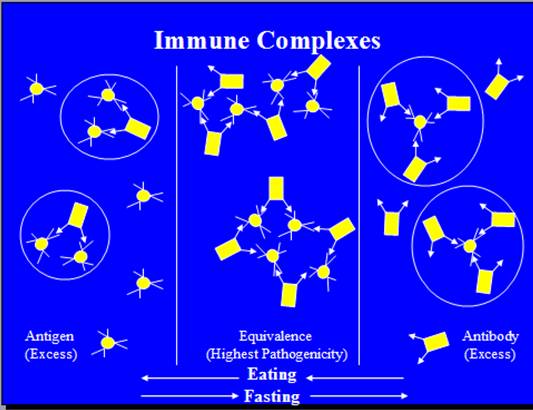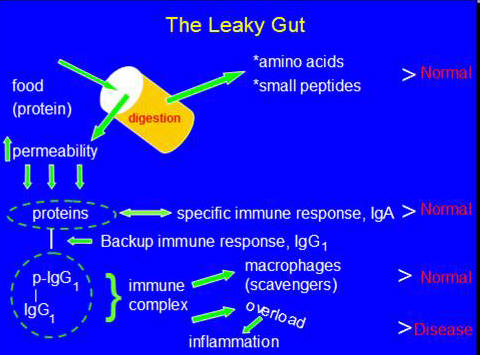Food Allergies: Why We Crave What Harms
Us
 |
- When you are allergic to a food,
you have antibodies to that food. The food is
an antigen and your body makes antibodies against
that antigen.
- What makes you feel bad and
damages your body is the large immune complexes
formed when antigens and antibodies are present in roughly the same
amount.
- When you eat the food you are
allergic to, you add antigens, (allergens). Then, there are enough
antigens to occupy all the antibodies without forming big complexes. Huge
complexes do not form because there is more antigen that antibody.
- After some hours of not eating
that antigen, antigens and antibodies are present in a balanced ratio, the worst
scenario for your body. You will feel bad and you will experience relief
only by either waiting it out (antigens will clear out of the system in a few
days) or eating more of the food.
|
Leaky Gut and
food Allergies:
 |
Damaged
digestive systems are thought to be a main
contributor to food allergies. It works in a vicious cycle:
because the digestive system is damaged and allowing the intrusion of larger
than usual particles, the back up immune system, IgG is activated. It
then sends in antibodies to those foods to help your body eliminate what it
perceives as invaders. These antibodies form immune complexes which
can further damage the digestive system and perpetuate the cycle. |
Both of these slides were made by
Vincent Marinkovich, MD Clinical Associate Professor, Stanford Medical
School. Dr Marinkovich is a pediatric allergist. These pictures were
part of a slide presentation made available to me through the Institute for
Functional Medicine.

